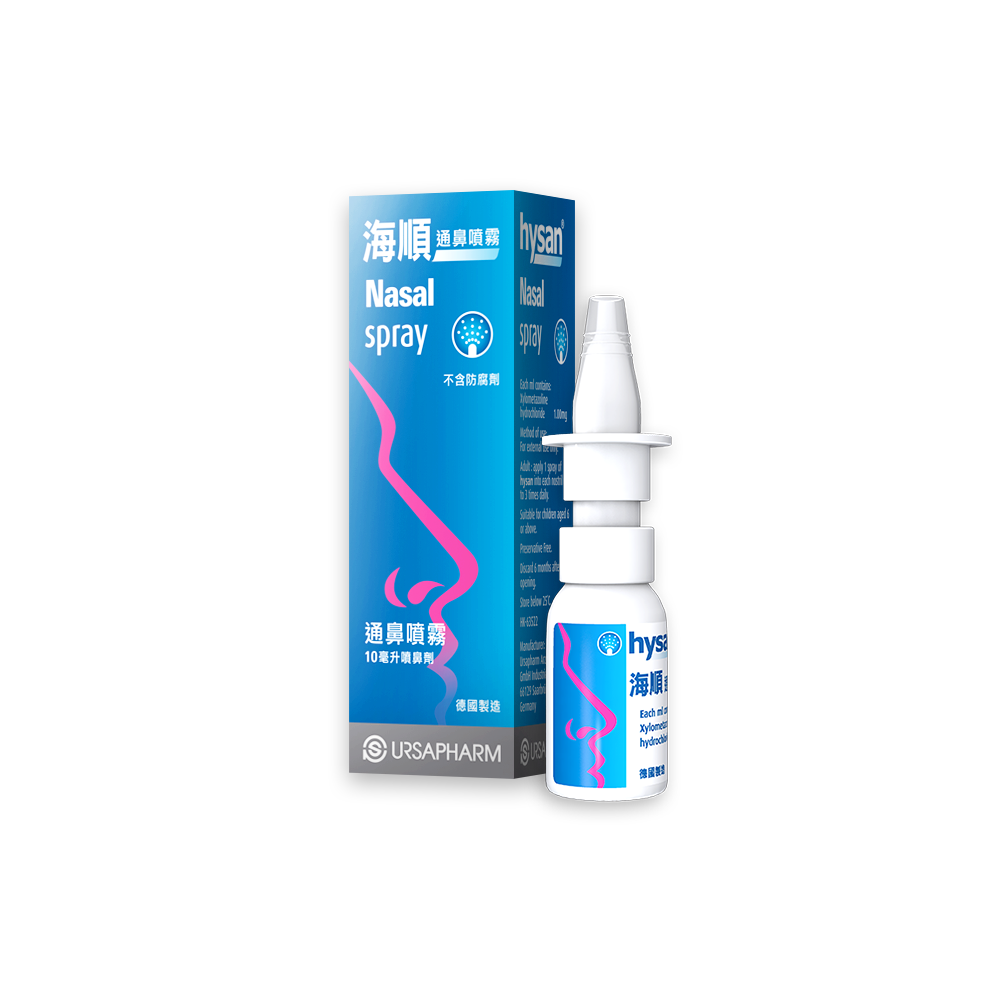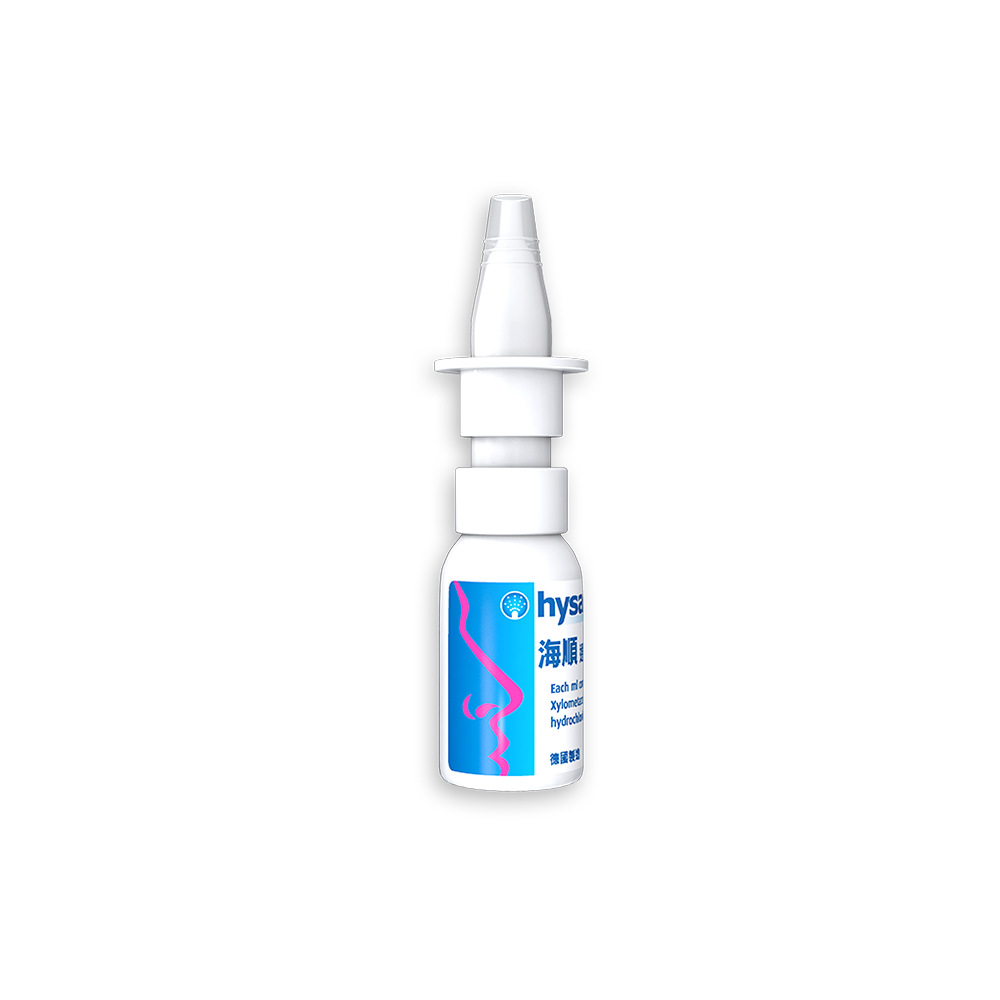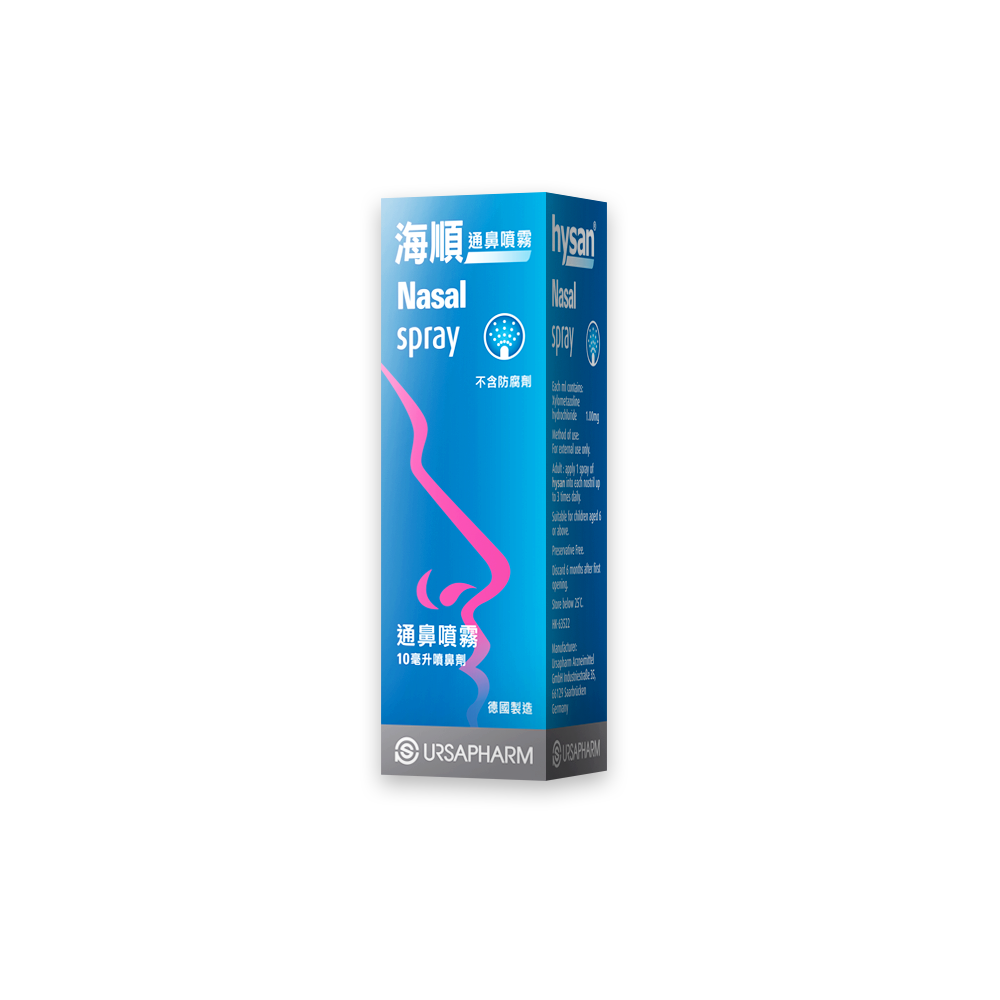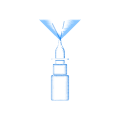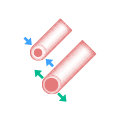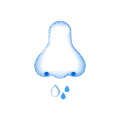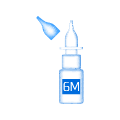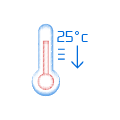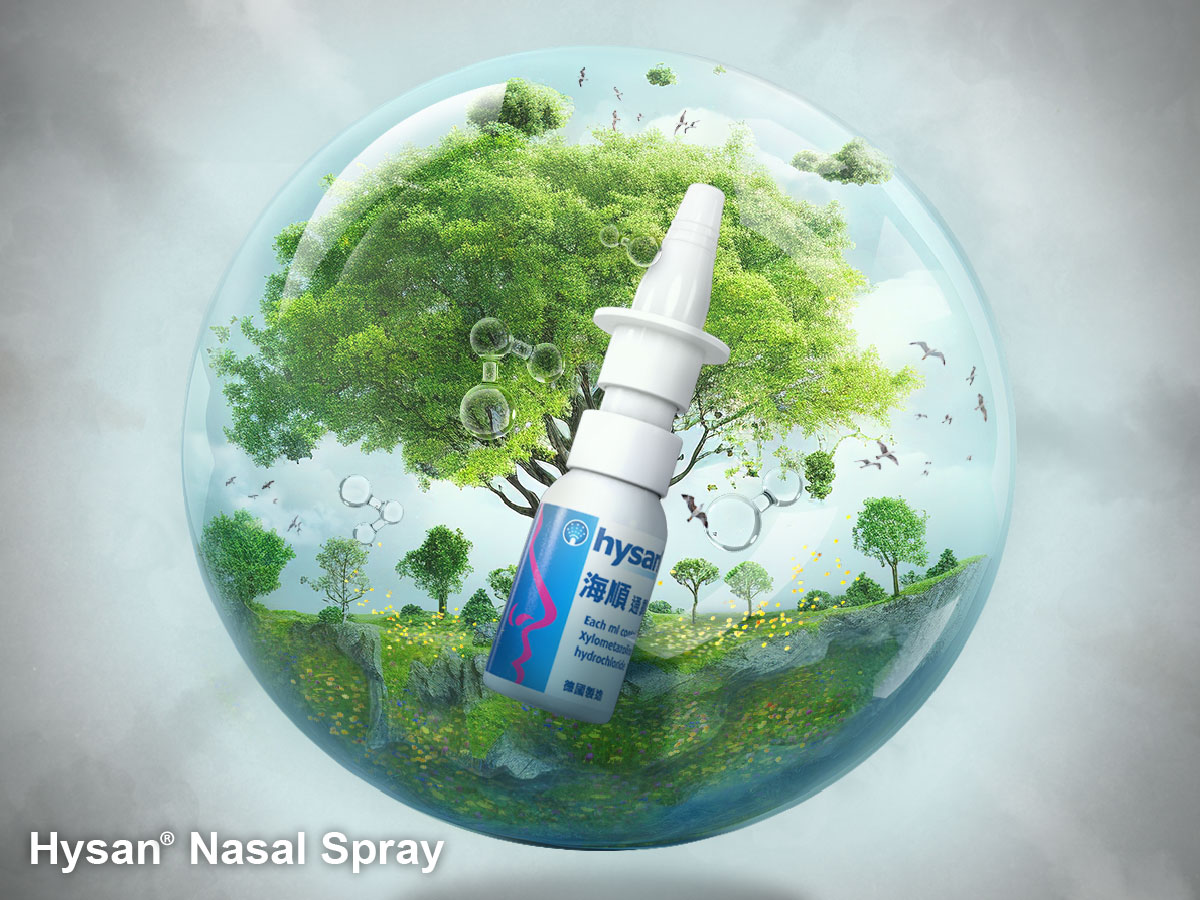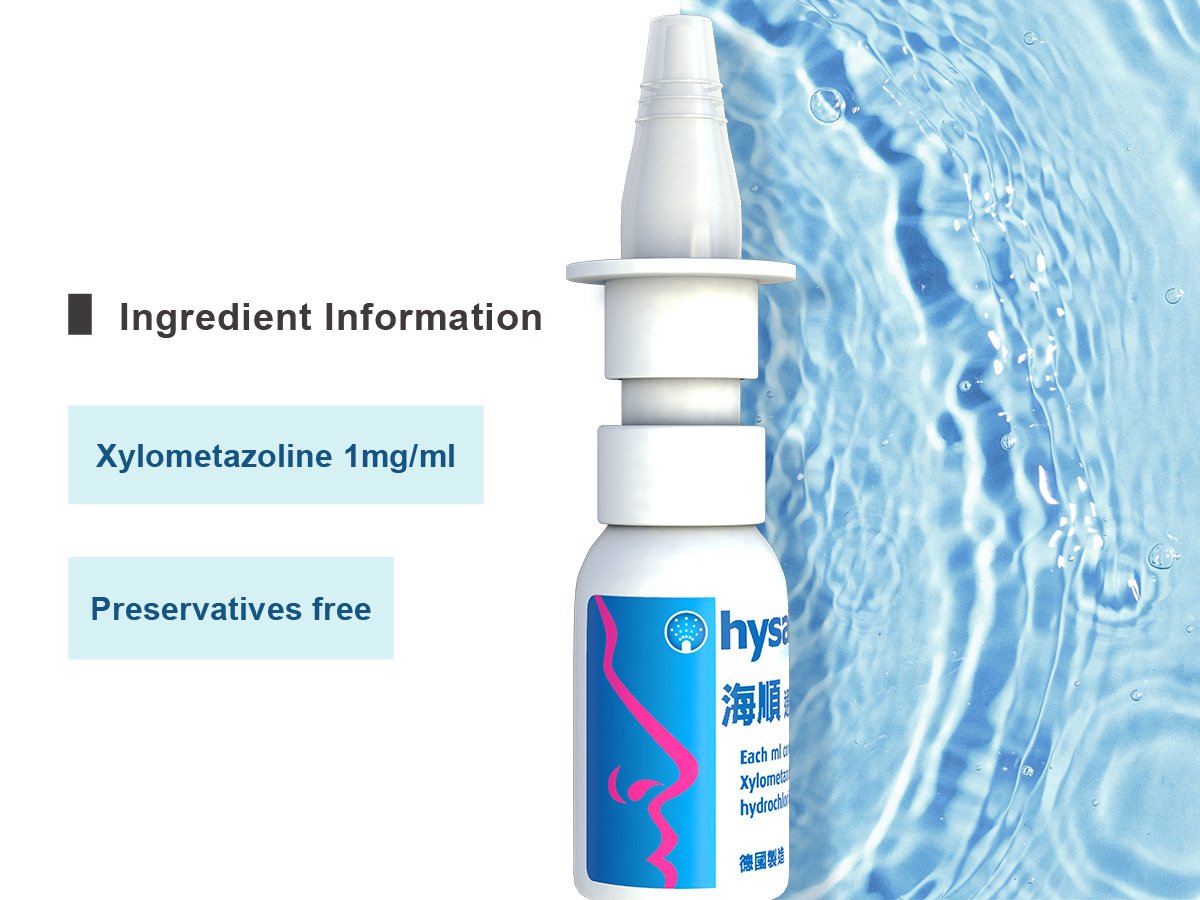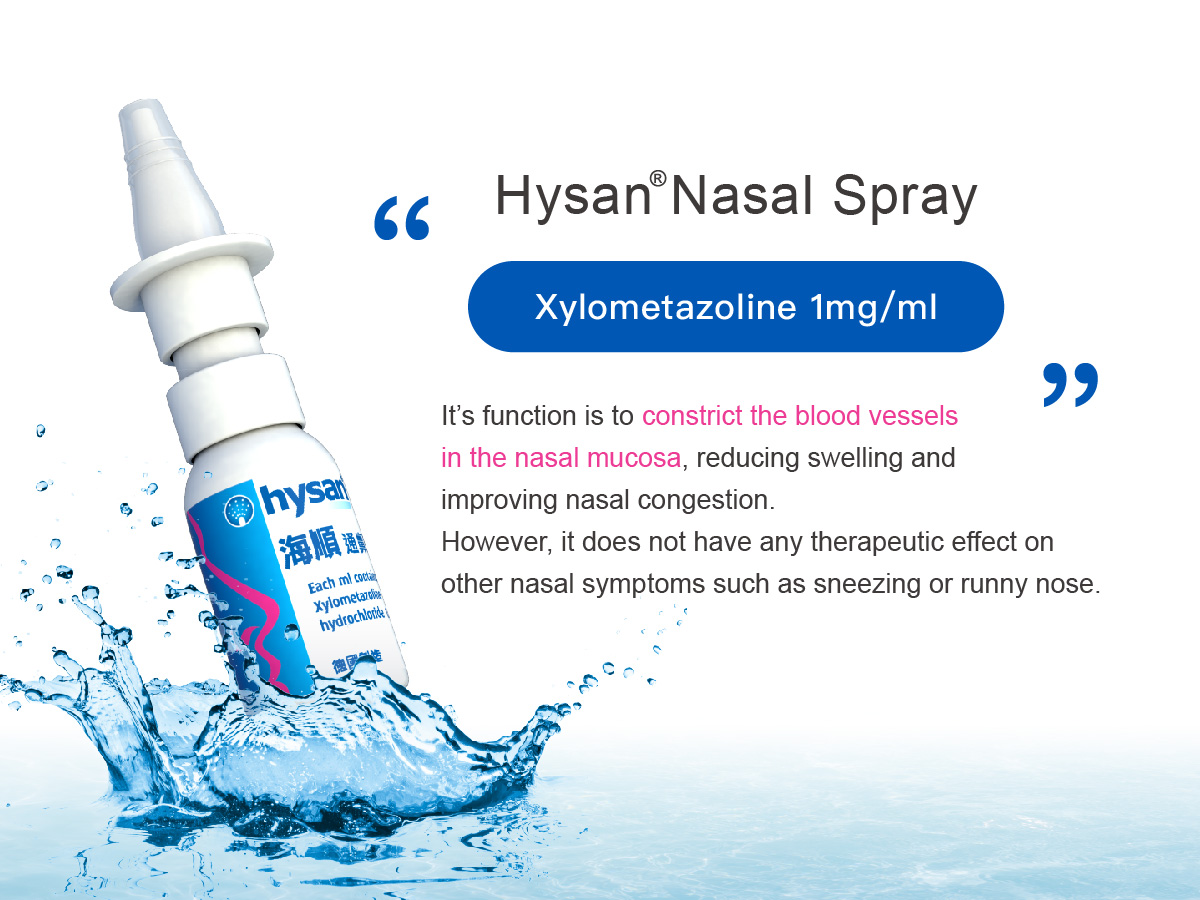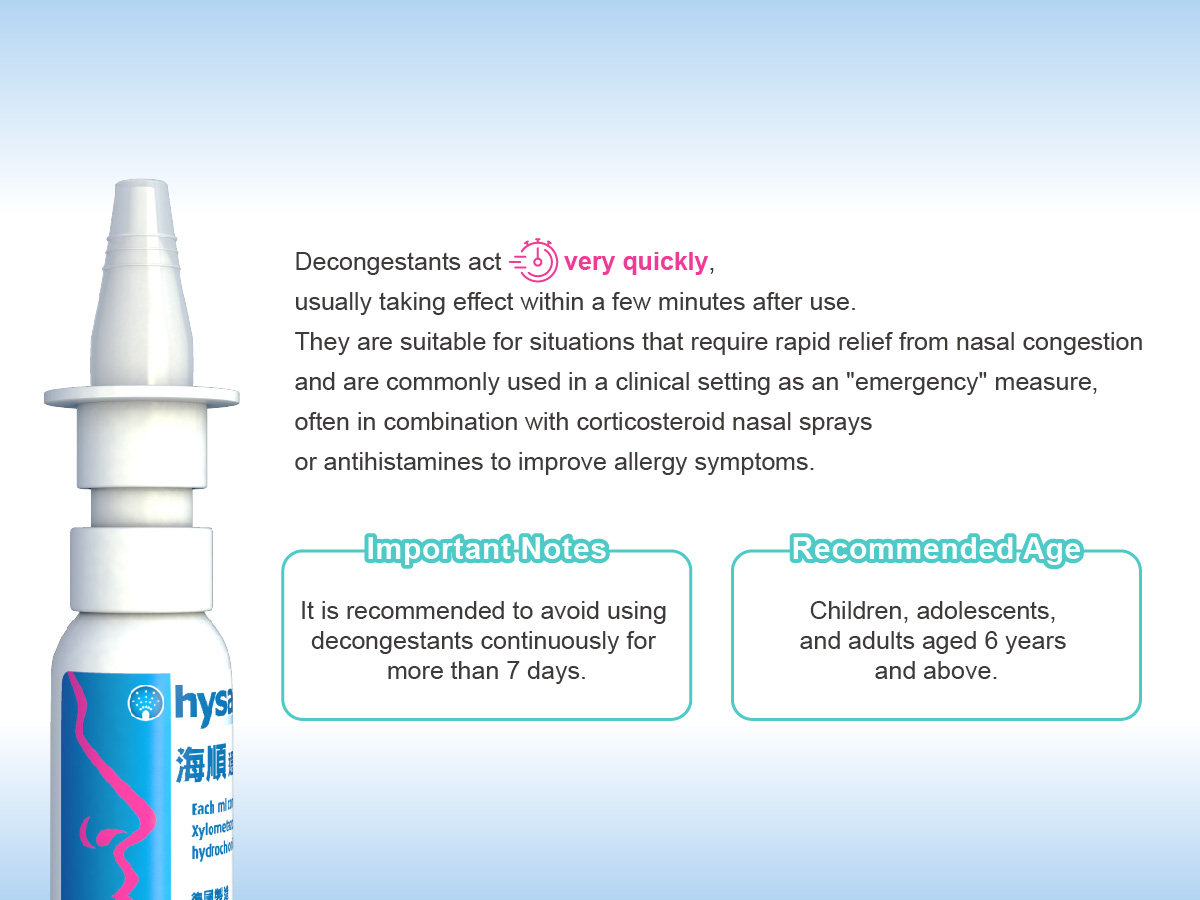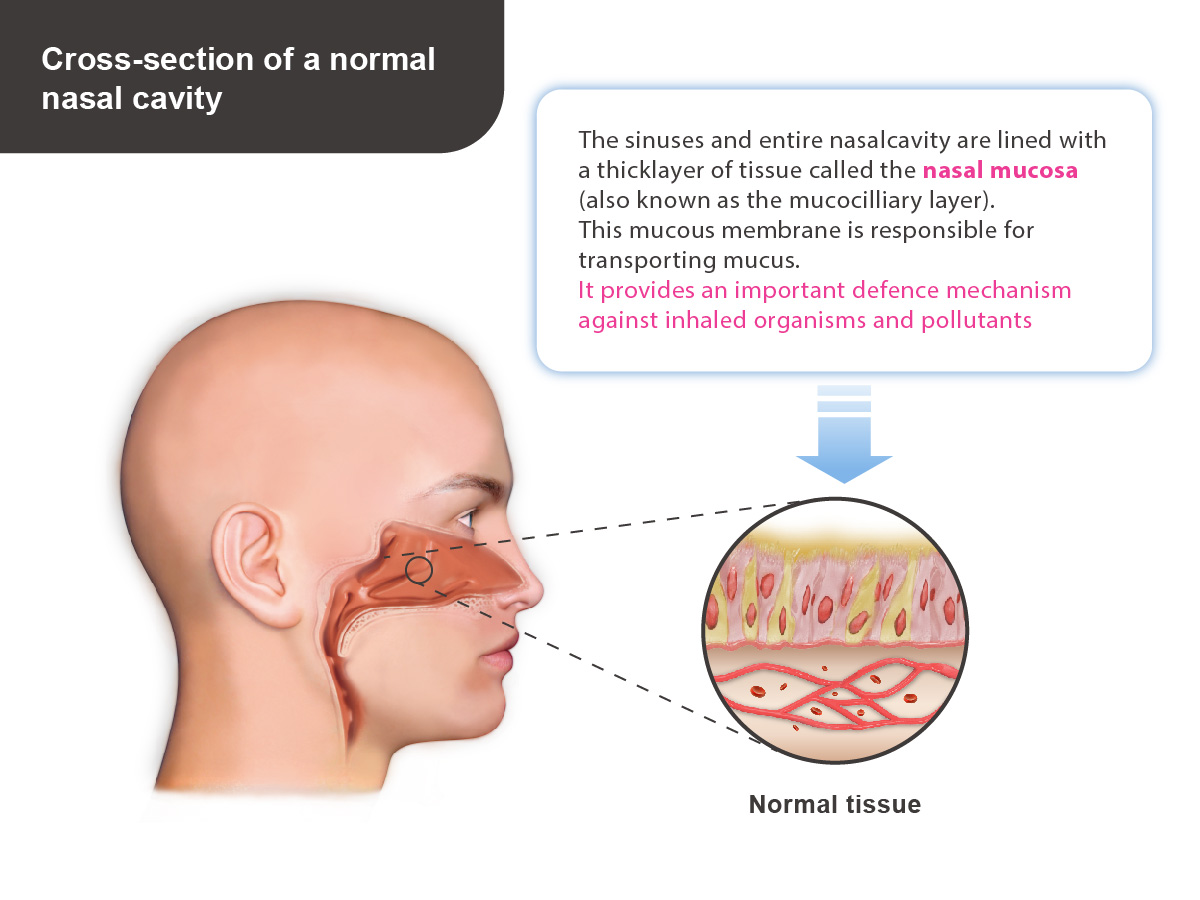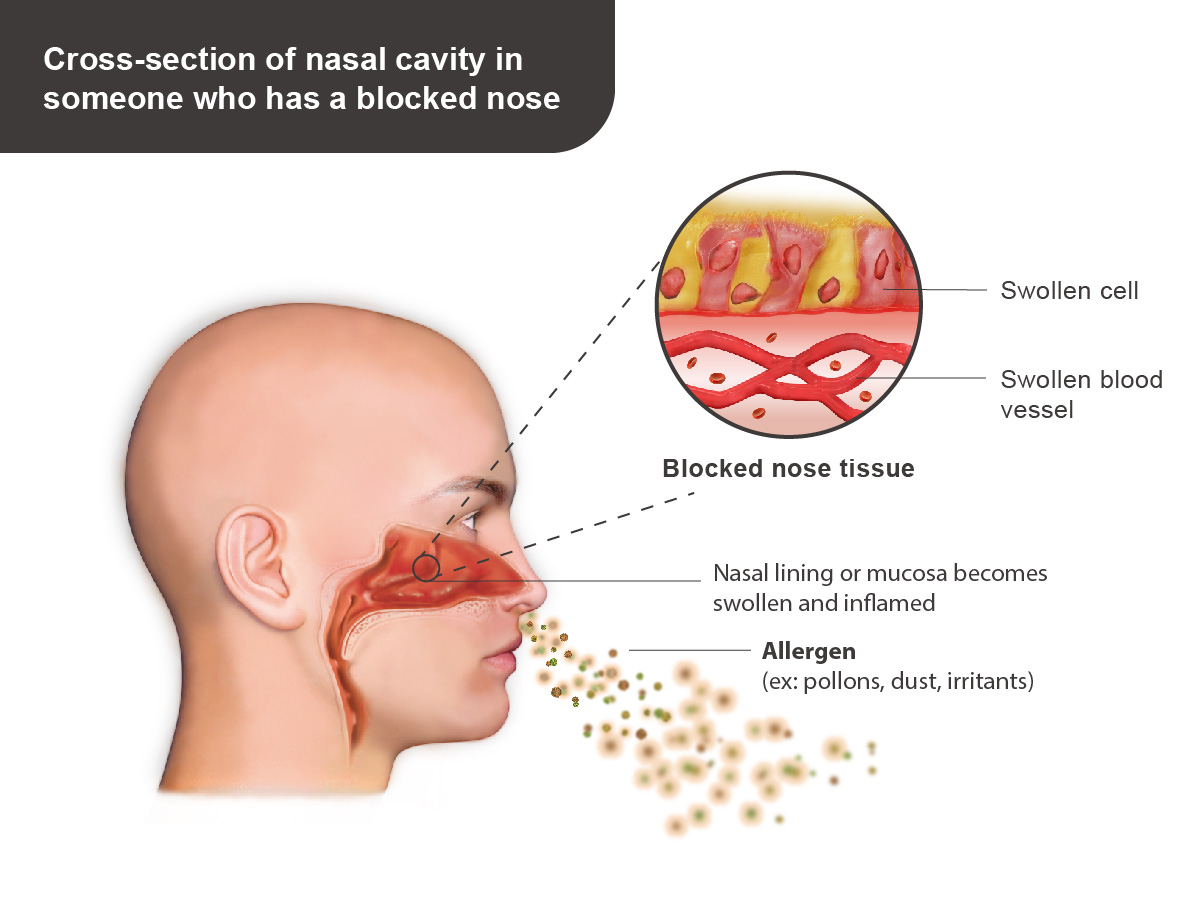01 / 03
hysan® Nasal Spray
by Ursapharm
IntroductionMedication Usage
Long-term Nasal Congestion
Hysan® Nasal Spray
Hysan® Nasal Spray Ingredient Information
What is Xylometazoline?
Xylometazoline, also known as a decongestant or a sympathomimetic agent, is a commonly found ingredient in nasal sprays on the market.
Hysan® Nasal Spray’s main ingredient is Xylometazoline 1mg/ml, which works by constricting the blood vessels of the nasal mucosa, reducing swelling, and thus improving nasal congestion.
Symptoms of congestion
Nasal congestion, also known as stuffy nose, occurs when the nasal cavity, nearby tissues, and blood vessels become filled with excessive fluid, causing swelling and a feeling of blockage in the nose, similar to a clogged pipe.
All the benefits of 3K® System
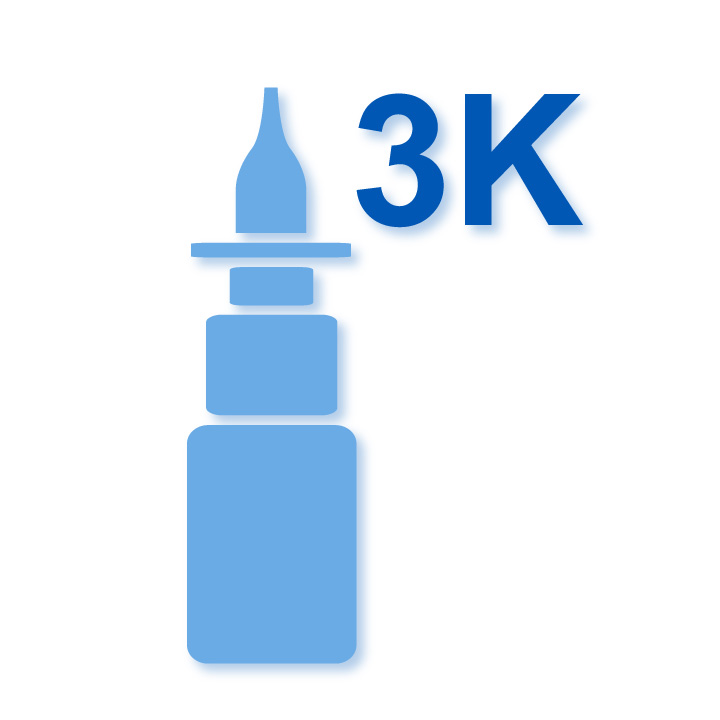
3K® System patented bottle
The 3K® system is a so-called NON-AIRLESS pump, which reliably prevents the contents of the container from being contaminated.

Preservatives-free
The 3K® system is a cutting-edge application system for discharging liquid medicinal preparations which keeps the contents permanently sterile.
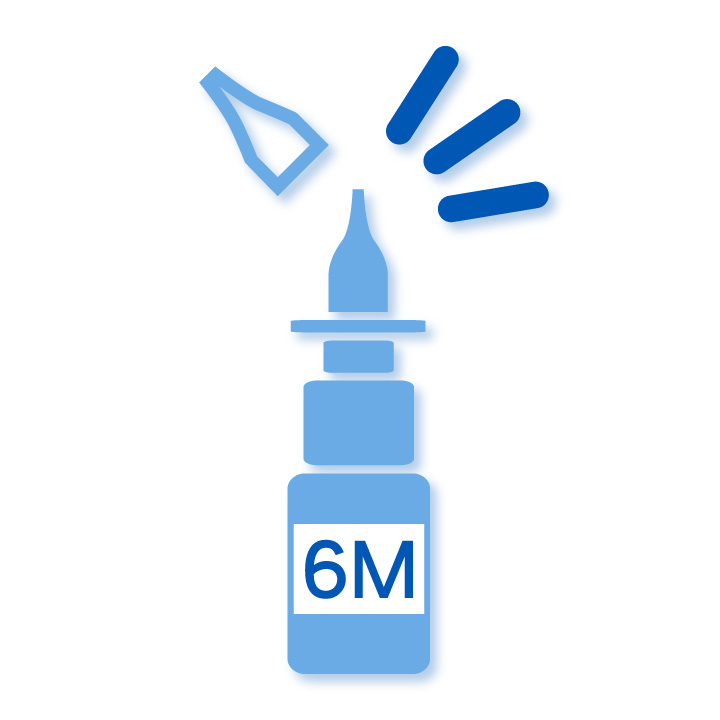
6 months shelf life after opening
The 3K® system has the built-in valve which prevents the possibly contaminated liquid from flowing back into the bottle after it sprayed so that germs cannot get into the solution.
*Friendly Reminder : Before using this product, please consult your doctor if you are an infant, child, or pregnant woman.
